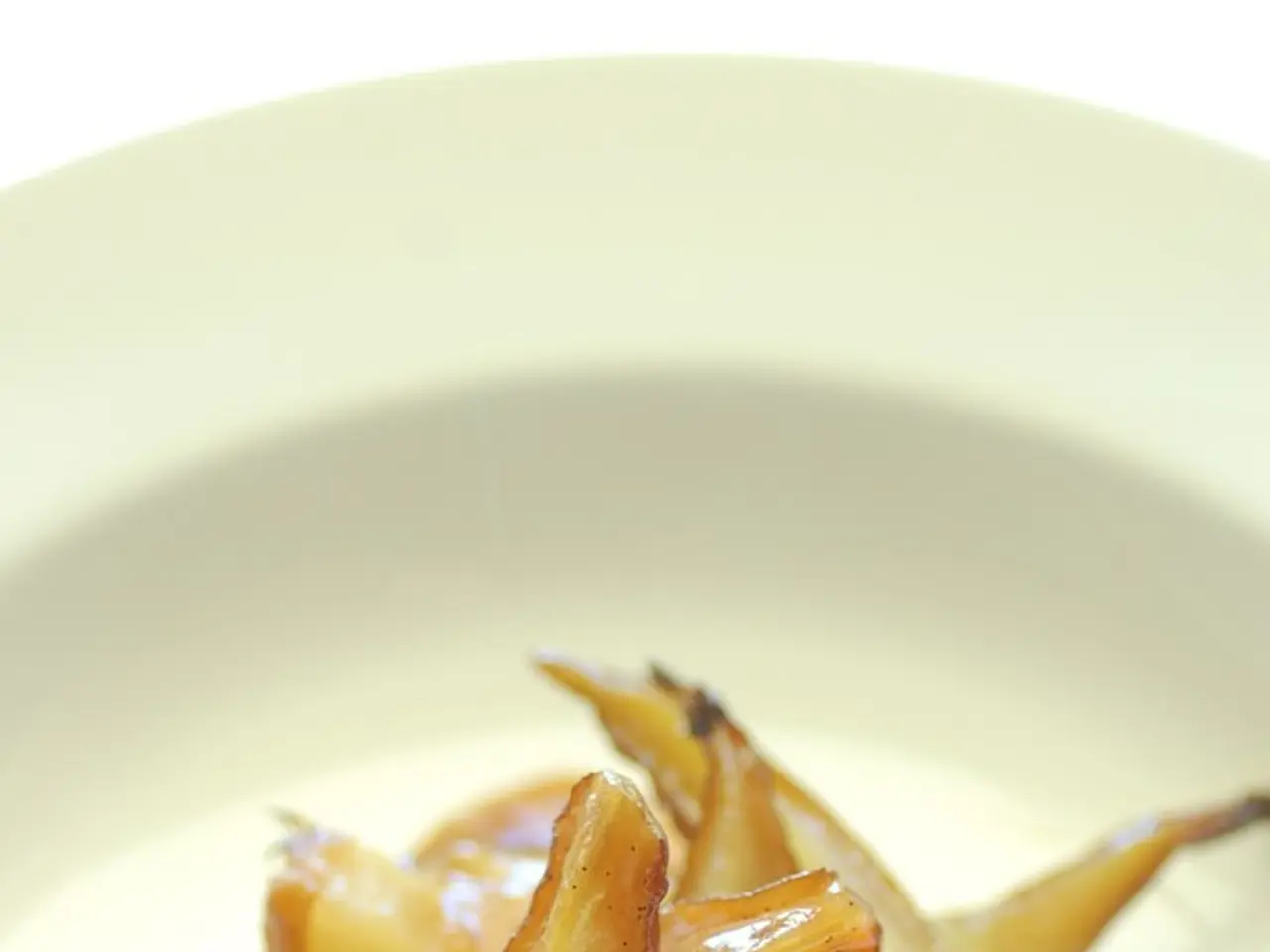Foods to Consume Post Colonoscopy: 16 Nutritious Options
**Post-Colonoscopy Diet: A Guide to Aiding Recovery**
Following a colonoscopy, a stepwise diet is recommended to support recovery, ease digestion, and help prevent discomfort such as constipation or bloating. Here's a breakdown of the foods to eat and avoid during this period.
**Recommended Foods to Eat After a Colonoscopy:**
1. **Plain, bland, easily digested foods** like bananas, rice, toast, and yogurt are ideal to start with. These help your digestive system gradually adjust after the procedure.
2. **Fiber-rich foods** should be incorporated gradually to soften stools and promote bowel movements. Examples include oats, lentils, brown rice, apples, and leafy greens.
3. **Hydrating fluids** are essential since bowel prep can cause dehydration. Drink plenty of water to help restore hydration and ease stool passage.
4. **Natural mild laxatives or stool softeners**, such as prunes or psyllium husk, can be considered if constipation occurs, but only after consulting your physician.
**Foods to Avoid After a Colonoscopy:**
1. Avoid high-fiber foods immediately after the procedure until you have started to tolerate gentle foods. For example, raw fruits and vegetables, nuts, whole corn kernels, and other hard-to-digest fiber sources should be avoided initially.
2. Stay away from spicy, greasy, or heavy foods that can irritate your digestive system or cause discomfort.
3. Limit alcohol and caffeinated beverages, which can dehydrate you and exacerbate digestive upset.
**Additional Tips:**
1. Engage in gentle physical activity, like walking, to stimulate bowel function after your procedure.
2. If you experience persistent symptoms such as severe abdominal pain, prolonged constipation (beyond 3-4 days), bloating, nausea, or blood in stool, contact your healthcare provider promptly.
After a colonoscopy, rehydrating and restoring electrolyte levels is a key priority. Consuming liquids such as water, sports drinks, vegetable or fruit juice, herbal tea, and liquid-based foods like mild soup and applesauce can help with this.
It is important to note that a colonoscopy is a procedure used to detect abnormalities in the colon, such as colorectal cancer or polyps that may develop into cancer. Other factors that may increase a person's chance of developing colon cancer include smoking, excessive alcohol consumption, eating lots of red and processed meats, inflammatory bowel disease (IBD), obesity, diabetes, colorectal cancer in the family, and being over the age of 45.
People aged 45-75 should get a colonoscopy every 10 years to ensure they do not have any problems, with some people requiring additional screenings. A person can eat white pasta following a colonoscopy as it is a low-fiber food. However, it is best to avoid wholemeal, wholewheat, or brown pasta. After a colonoscopy, a person can expect to stay at the hospital for a period until the anesthetic has worn off.
- Age affects the chances of developing colon cancer, with those over 45 being recommended to get a colonoscopy every 10 years.
- For people recovering from a colonoscopy, plain, bland, easily digested foods like bananas, rice, toast, and yogurt are ideal to start with.
- Fiber-rich foods, such as oats, lentils, brown rice, apples, and leafy greens, should be gradually incorporated into the diet to soften stools and promote bowel movements.
- Hydrating fluids, like water, are essential to prevent dehydration caused by bowel prep and ease stool passage.
- In some cases, natural mild laxatives or stool softeners, like prunes or psyllium husk, may be considered if constipation occurs after consulting a physician.
- High-fiber foods, such as raw fruits and vegetables, nuts, whole corn kernels, and other hard-to-digest fiber sources, should be avoided immediately after the procedure until gentle foods are tolerated.
- Spicy, greasy, or heavy foods that can irritate the digestive system or cause discomfort should be avoided following a colonoscopy.
- Limit alcohol and caffeinated beverages after a colonoscopy to prevent dehydration and digestive upset.
- Science suggests that chronic-kidney-disease, chronic-diseases, and bipolar are other medical-conditions that require careful consideration regarding food and nutrition.
- The food choices made for health and wellness should consider various factors like fiber, hydration, and careful food selection post-colonoscopy to avoid discomfort and aid recovery.
- CBD can potentially help manage chronic-diseases, but its effects on the digestive system after a colonoscopy are not fully understood, and more scientific research is needed.








